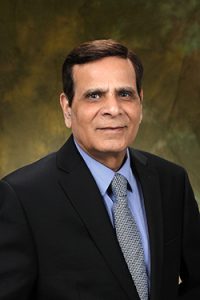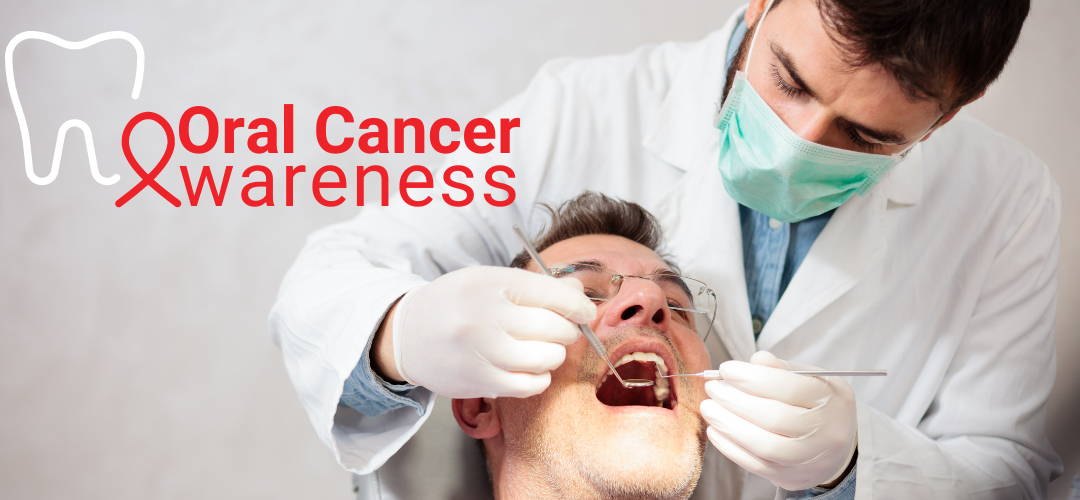Eating, drinking, speaking, and smiling – our mouths play a significant role in our overall health and well-being. We often undervalue the importance of our mouth and oral care. This is probably why oral cancers are often overlooked and discovered too late in their development.
The mouth (oral cavity) can easily be examined, suggesting that it should be easy to detect cancer of the oral cavity at an early stage. Yet, in 2020 an estimated 53, 260 new persons developed oral and pharyngeal cancers and 10,750 persons died due to this disease in the United States. Unfortunately, incidences of these cancers have increased in the last 20 years. The overall 5-year relative survival rate of these cancers in the U.S. is 66.2 percent. Only 29 percent of these cases are detected at localized stage (confined to primary site only), when the 5-year survival rate is 85 percent. This means that half of the current deaths can be prevented by starting a mechanism to detect these cancers at an early stage.
In fact, the majority of these cancers can be prevented by a life-style change. Let’s get empowered to effectively fight this dreadful disease.
Who is More Likely to get Oral and Pharyngeal Cancers?
Despite tremendous advances, medical science cannot predict the chances of getting any cancer in a specific person, but the rate of new cases of cancer (cancer incidence) in populations is known. Based on 2013-2017 data, about 11.4 per 100,000 persons get this disease every year (114 persons in 1 million population). Males contract more of these cancers.
Use of tobacco (in any form), alcohol use, and infection with human papilloma virus are major causes. However, many persons without any of these risk factors are also known to have developed cancers of the oral cavity or pharynx. Therefore, it is important that everyone in the community remain vigilant about this disease. Fortunately, since oral cancers can be detected simply by clinical examination, patients can screen themselves for any changes in their mouths and can bring these concerns to their dentist or physician for further examination of the oral cavity and pharynx. Majority of the annual 53,000 cases of cancers of the oral cavity and pharynx can be prevented.
What are Oral Potentially Malignant Disorders?
Cancers of the oral cavity are preceded by a stage called oral-potentially-malignant-disorders (OPMD). OPMDs are pre-cancerous lesions that have higher chances of developing oral cancers. OPMD can be observed ten or more years before the cancer develops. OPMD has several forms, but all can be easily seen only by a good clinical examination. Additionally, OPMDs can be cured by themselves, but one needs to be vigilant about persistent OPMDs. A Dentist or Physician will look at the same lesion after 2 to 3 weeks and will determine if the size of the lesion is increasing or decreasing. Further treatment of these lesions can prevent development of oral cancers. The treatment of OPMDs is much less invasive than treatment of cancers. All dentists are trained to detected OPMDs and early cancers. Pre-cancerous stage of cancers of the oral cavity can be detected more than 10 years in advance.
What Can I do to Prevent Oral Cancers?
Some areas in the world have established oral cancer screening programs. Under these programs, all adults are examined periodically for presence of OPMDs or cancers, generally once every three years. Repeated examinations ensure that no one with a tendency to develop OPMD is missed.
The U.S. does not have an oral cancer screening program. But patients can still protect themselves through self-examination, check-ups, and vigilance. Insurance provides for a free dental check up every six months. During your next visit, bring any concerns to your dentist and don’t be afraid to ask for clinical examination and screening for OPMD.
To prevent oral cancers:
- Conduct a self-examination at least once a month
- Visit the dentist every six months for routine exams
- Get yourself screened for oral pre-cancers and cancers
- Don’t smoke or use any tobacco products and decrease alcohol use
Check out this self-examination how-to video from checkyourmouth.org.
Have concerns with your oral health? Roseman Dental is committed to providing high-quality, affordable dental care for children, teens, and adults. Our dedicated resident and faculty dentists are ready to serve you and your oral health needs. Contact Roseman Dental to request a dental examination today!
Article by Kishore Chaudhry, MD
 Kishore Chaudhry, MD
Kishore Chaudhry, MD
Research Associate Professor
Roseman University College of Dental Medicine
Dr. Chaudhry has over three decades of extensive research experience. A physician by background and a senior scientist in the fields of oncology and public health, he has been recognized as a preeminent epidemiologist worldwide. His contributions to the fields of tobacco and cancer research, oral cancer in particular, have played a critical role in several health policy changes, and planning control measures. With extensive research grant experience, Dr. Chaudhry has garnered millions of dollars in grant support from various national and international organizations. Over the last two decades, he has served on several expert planning committees with the World Health Organization (WHO) and other international agencies. He has published extensively in various peer-reviewed journals and authored several book chapters in the topics of cancer research, tobacco control, asthma, and health care expenditure. He is an active reviewer and serves on the editorial board of numerous peer-reviewed journals. Dr. Chaudhry has held key administrative positions in academia as well as in health sector of the Indian government. During his tenure as the Dean and Chair of the Departments of Community and Family Medicine at the All India Institute of Medical Sciences (AIIMS, Bhopal), one of the most reputable educational institutions in India, he was instrumental in the initiation and development of multiple new programs and departments and laid a strong research foundation. The most notable role that defines Dr. Chaudhry’s research accomplishments is his journey as an accomplished researcher to being the Director Level Scientist at the Indian Council of Medical Research (ICMR), which is equivalent to the National Institute of Health (NIH). His extensive experience in multi-specialty and multi-center projects provided him the ability to work in different environments and design studies in accordance with constraints of different scientists and institutions.



